Making a difference: Social scientists celebrated at the Vice-Chancellor's Innovation and Engagement Awards
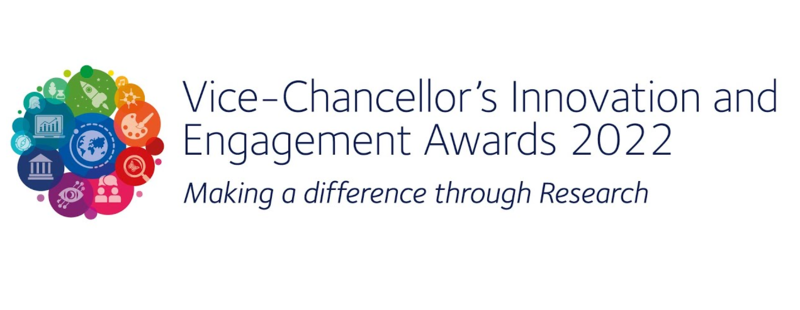
Five researchers and their teams from across Oxford's Social Sciences Division have today been honoured in the inaugural Vice-Chancellor's Innovation & Engagement Awards, celebrating the wide range of ways in which research undertaken at the University makes a positive difference to the economy, the environment, and society.
The Awards, which highlighted individual researchers' and research team's high-quality innovation and engagement activities at all levels, illustrate the value of the Oxford Social Sciences research when connected with the wider world - including its capacity to create, inform and enact positive change.
Social scientists honoured in the Awards:
Winners
Supporting Online Justice – Enhancing Accessibility, Participation and Procedural Fairness (Faculty of Law)
This project supported lay and vulnerable users of online hearings by producing five public information films, now available on the HM Courts and Tribunals Service YouTube channel. Produced in partnership with the court service, judiciary, advice sector and members of the public, the design focused on empathy, accessibility, and effective participation, while catering to diverse users.
The transition toward online hearings in courts and tribunals has raised a number of questions about how prepared the public is for this innovation. Concerns have been raised that access to justice could be severely undermined as many users of the legal system may be ill-prepared, with limited equipment, bandwidth or skills required to engage effectively. These concerns were tested during the pandemic when there was often no alternative but to conduct hearings online with participants appearing ‘in’ court from their homes.
The Supporting Online Justice Project was an evidence-based communication and design project. It focused on how to best support lay users in online hearings by providing technical, legal, and emotional support to them in a series of open access, evidence-based films. The project engaged in a cycle of consultation, research, and design. This involved widespread engagement with national stakeholders; research on the legal process, design, and best practice; the production of prototypes; and their testing with lay and disadvantaged users of the justice system. The project team worked closely with HM Courts and Tribunals Service (HMCTS) as project partners, as well as members of the Judiciary and the advice sector.
The five films were launched in March 2022 and are attracting an average of around 500 views a week. Since the launch, the research team have been asked to produce a Scottish version of one of the films and a Makaton version for the Special Educational Needs and Disability Tribunal. The team have also secured further funding to work with HMCTS to produce a suite of resources for the advice sector.
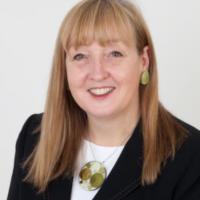
Project team: Professor Linda Mulcahy (Project Lead, pictured), Dr Anna Tsalapatanis, Nikki Macmichael, Rowen Siemans, Lara Maclachlan; Faculty of Law.
Dr Emma Rowden, Oxford Brookes University.
Alison Bergin, HM Courts and Tribunals Service.
Key Funders: HM Courts and Tribunals Service, UK Research and Innovation.
Link for more information: https://www.law.ox.ac.uk/supporting-online-justice
COVID-19 Parenting Emergency Response (Department of Social Policy and Intervention)
Between 2020-2021, the team rapidly developed and delivered evidence-informed COVID-19 parenting resources reaching more than 210 million families in 198 countries and territories. These resources were translated into 114 languages and were included in the pandemic responses of 33 governments to prevent violence and improve wellbeing. This is the first-time parenting information has been disseminated (and evaluated) at this scale, let alone during a crisis.
COVID-19 Parenting Emergency Response was based on rigorous research led by Dr Lachman, Professor Cluver and colleagues, who developed and tested the Parenting for Lifelong Health suite of in-person parenting programmes, which had been delivered to 300,000 families by the beginning of 2020.
COVID-19 brought a global challenge of unprecedented stress for families, through lockdowns, school closures and economic crisis, leading to sharply increased global rates of child abuse. In March 2020, the team initiated a collaboration with WHO, UNICEF, the Global Partnership to End Violence Against Children, World Without Orphans, The Early Childhood Development Action Networks, Clowns Without Borders South Africa, and 240 local NGOs to convert in-person parenting programmes into parenting tip sheets, cartoon videos, TV and radio scripts, public service announcements, and social media messages.
To facilitate rapid adoption, the materials were open-source and freely available. The team worked with governments, NGOs, and UN agencies to adapt and disseminate the resources for local settings, including national television in Pakistan, community radio broadcasts in Malawi, parenting hotlines in Montenegro, and food parcels in Nepal. Disability-adapted versions were shared with the Special Olympics and reached refugee camps through UNODC and UNICEF.
This work has also laid the foundation for a successful proposal to the LEGO Foundation and Oak Foundation for the Global Parenting Initiative (GPI). This exciting five-year initiative aims to innovate, evaluate, and accelerate the scale-up of human-digital parenting programmes in the Global South.
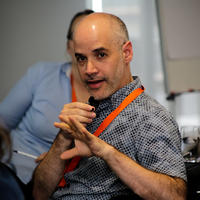
Project Team: Dr Jamie Lachman (Project Lead, pictured), Professor Lucie Cluver, Dr Isang Awah, Amberley Barrington-Peek, Zuyi Fang, Louise Gordon, Dr Ohad Green, Susan Sentence, Saara Thakur, Dr Inge Wessels; Department of Social Policy and Intervention.
Slavica Gajdadzis-Knezhevikj, Professor Marija Raleva; Alternativa. Professor Liane Alampay, Dr Rosanne Jocson, Bernice Mamauag, Jennel Reyes; Ateneo de Manila University. Lauren Latona, Bard College. Lindokuhle Ngcobo, Clowns Without Borders South Africa. Nisso Nurova, Deloitte. Sabine Rakotomalala, Global Partnership to End Violence Against Children. Viorel Babii, Natalia Grandabour, Dr Lesco Galina; Health for Youth Association. David Stern, IDEMS International. Lara Breckon, Imperial College London. Dr Jenny Doubt, Independent Research Consultant. Brigitte De Hulsters, Lifecycle Consulting. Koloina Kremer, Richemont International SA. Rachel Machefsky, The Behavioural Insights Team. Shekufeh Zonji, The Ealy Childhood Development Action Networks. Stephen Blight, UNICEF. Ivo Kunovski, University Clinic of Psychiatry. Helen Mebrahtu, Kasonde Mwaba, Professor Lorraine Sherr; University College London. Nicole Chetty, Dr Kufre Okop, Professor Catherine Ward; University of Cape Town. Dr Alison Swartz, University of Cape Town & University of Essex. Dr Alexander Butchart, World Health Organisation. Phil Green, World Without Orphans. Key Funders: LEGO Foundation, Oak Foundation, UKRI GCRF / Newton Fund, The Human Safety Net, UKRI Accelerating Achievement for Africa’s Adolescents (Accelerate) Hub, University of Oxford’s COVID-19 Response Fund.
Link for more information: https://covid19parenting.com/
Quick Cash-based Poverty Relief during Covid-19 (Blavatnik School of Government)
When COVID-19 lockdowns in South Africa led to devastating spikes in poverty and unemployment, the team provided the government with evidence-based recommendations for designing emergency relief. Based on this advice, the government implemented far-reaching welfare reforms, providing cash grants to the destitute and unemployed.
In March 2020, South Africa implemented a strict COVID-19 lockdown, leading to three million people losing their jobs. In 2019, before the pandemic hit, 29.1% of adults in the country were already unemployed and 1 in 10 South Africans were going to bed hungry. This spiked to 1 in 5 people in April 2020: at that point, the government had yet to provide any emergency relief.
Efforts to distribute food parcels to the destitute began in April 2020, but the government struggled to implement this emergency relief at scale. Between April and July, only 1.2 million food parcels were distributed, while 9.8 million households were unable to buy enough food to cover basic needs.
Using evidence from their research and other research worldwide, Dr Kate Orkin and her team identified three immediate ways in which welfare policy in South Africa could be updated to reduce hunger and poverty during lockdown: cash grants paid via mobile phone instead of food parcels, unemployed benefits, and reduced paperwork.
During 2020 and 2021, the South African presidency commissioned her to make evidence-based recommendations. She formed a team of economists from the University of Oxford, the University of Cape Town and Duke University, who produced evidence review papers and simulated the impact of policy options for emergency relief. Combined with other expert recommendations and civil society pressure, their recommendations led to major policy changes.
Together, the team’s recommendations influenced spending of ZAR 97.5bn (GBP 4.87bn) which reached 28.5 million people in need. Independent analysis estimates the measures led to 5.5 million fewer people facing food poverty between April and June 2020.
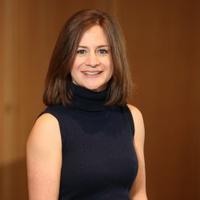
Project Team: Dr Kate Orkin (Project Lead, pictured), Marta Grabowska, Desmond Fairall, Alice Cahill; Blavatnik School of Government.
Brynde Kreft, Department of Economics. Dr Robert Garlick, Ignacio Rodriguez Hurtado; Duke University. Dr Yasmine Bekkouche, World Bank. Dr Neil Rankin, Stellenbosch University. Wim Louw, Abdul Latif Jameel Poverty Action Lab. Saul Musker, Private Office of the President, Republic of South Africa. Key Funders: UK Research and Innovation, Government of South Africa.
Link for more information: https://www.bsg.ox.ac.uk/research/research-and-policy-updates/getting-cash-based-poverty-relief-poorest-quickly-during-covid
Highly Commended
Language Screen (Department of Education)
LanguageScreen is a mobile app that allows school staff to assess children’s language skills quickly and accurately. It is based on extensive research into children’s language development. LanguageScreen, together with two other apps from OxEd, allows education professionals to identify children who will benefit most from educational support.

Project Team: Professor Charles Hulme (Project Lead, pictured), Dr Gillian West, Caroline Korrell, Sarah Hearne, Rachel Gardner, Rosanne Esposito; Department of Education.
Dr Mihaela Duta, Department of Computer Science. Professor Margaret Snowling, Department of Experimental Psychology. Chris Fellingham, Oxford University Innovation. Dr Claudine Bowyer-Crane, National Institute for Economic and Social Research. Dr Silke Fricke, University of Sheffield. Key Funders: Nuffield Foundation, Department for Education.
Link for more information: https://oxedandassessment.com/
Fairwork: Holding digital Labour Platforms Accountable (Oxford Internet Institute)
There are tens of millions of digital platform workers over the world doing work via platforms or apps such as Uber, Deliveroo or Upwork. However, many platform workers face low pay, precarity, and dangerous working conditions. Fairwork evaluates the working conditions of digital platforms and ranks them on how well they do. Fairwork’s goal is to show that better and fairer jobs are possible in the platform economy.
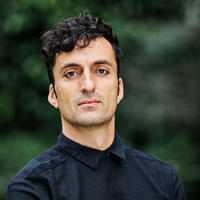
Project Team: Professor Mark Graham (Project Lead, pictured), Nancy Salem, Dr Matthew Cole, Daniel Arubayi, Dr Callum Cant, Fabian Ferari, Dr Kelle Howson, David Sutcliffe, Robert Warin, Dr Funda Ustek-Spilda, Alessio Bertolini, Adam Badger, Callum Cant, Jonas Valente, Michelle Gardner, Murali Shanmugavelan, Navneet Gidda; Oxford Internet Institute.
Srujana Katta, Blavatnik School of Government. Professor Richard Heeks, University of Manchester. Key Funders: European Research Council, Economic and Social Research Council, the Ford Foundation, the German Development Ministry and Oxford University’s Impact Engineering and Physical Sciences Research Council Acceleration Account Fund.
Link for more information: https://fair.work/
Project Partners: Jana Ababneh, Daniel Abs, Pablo Aguera Reneses, Iftikhar Ahmad, Gina Alaschkar , Maria Belen Albornoz, Luis Pablo Alonzo, Moritz Altenried, Oğuz Alyanak, Branka Andjelkovic , Thomas Anning-Dorson, Marcos Aragão, María Arnal, Arturo Arriagada, Daniel Arubayi , Tat Chor Au-Yeung, Ahmad Awad, Adam Badger, Marina Benedine, Ariane Berthoin Antal, Alessio Bertolini, Gautam Bhatia, Virgel Binghay, Richard Boateng, Manuela Bojadzijev, Macarena Bomhomme, Ameline Bordas, Maren Borkert, Álvaro Briales, Joseph Budu, Callum Cant, Rodrigo Carelli, Eduardo Carrillo, Chris King Chi Chan , Henry Chavez, Aradhana Cherupara Vadekkethil, Andrea Ciarini, Matthew Cole, Antonio Corasaniti, Pamela Custodio, Olayinka David-West, Nadia De Jesus, Luisa De Vita, Markieta Domecka, Marta D'Onofrio, Darcy du Toit, Veena Dubal, James Dunn-Willimason, Trevilliana Eka Putri, Nagham El Houssamy, Haya El Zayat, Batoul ElMehdar, Elisa Errico, Fabian Ferrari, Patrick Feuerstein, Roseli Figaro, Milena Franke, Sandra Fredman, Jackeline Gameleira, Pia Garavaglia, Beatriz Garcia, Chana Garcia, Michelle Gardner, Sharon Geeling, Navneet Gidda, Shikoh Gitau, Slobodan Golusin , Saúl Gomez, Mark Graham, Markus Griesser, Rafael Grohmann, Martin Gruber-Risak, Julieta Haidar, Khadiga Hassan, Richard Heeks, Mabel Rocío Hernández Díaz, Luis Jorge Hernández Flores, Victor Manuel Hernandez Lopez, Benjamin Herr, Kelle Howson, Francisco Ibáñez, Shahidul Islam, Tanja Jakobi, Athar Jameel , Hannah Johnston, Zeynep Karlidag, Lucas Katera, Mishal Khan, Maja Kovac, Martin Krzywdzinski, Amelinda Pandu Kusumaningtyas, Morad Kutkut, Arturo Lahera-Sánchez, Joy-Eveline Leeuw, Sebastian Lew, Jorge Leyton, Tatiana López Ayala, Bilahari Madhu, Raiyaan Mahbub, Amruta Mahuli, Melissa Malala, Oscar Javier Maldonado, Laura Clemencia Mantilla León, Claudia Marà, Paolo Marinaro, Ana Flavia Marques, Margreta Medina, Caterina Morbiato, Jamal Msami, Hilda Mwakatumbula, Baraka Mwaura, Mounika Neerukonda, Ana Negro, Sidra Nizambuddin, Thando Nkohla-Ramunenyiwa, Claudia Nociolini Rebechi, Kemi Ogunyemi, Caroline A Omware, Balaji Parthasarathy, Francesca Pasqualone, Obed Penu, Leonhard Plank, Valeria Pulignano, Jack Linchuan Qiu, Ananya Raihan, Antonio Ramírez, Juan-Carlos Revilla, Alberto Riesco-Sanz , Nabiyla Risfa Izzati, Nagla Rizk, Cheryll Ruth Soriano, Julice Salvagni , Derly Yohanna Sánchez Vargas, Maricarmen Sequera, Murali Shanmugavelan, Ruth Tarullyna Simanjuntak, André Sobczak, Shanza Sohail, Janaki Srinivasan, Anna Sting, Zuly Bibiana Suárez Morales , David Sutcliffe, Pradyumna Taduri, Kristin Thompson, Kiko Tovar, Pitso Tsibolane, Wing Yin Anna Tsui , Funda Ustek-Spilda, Jonas Valente, Jean-Paul Van Belle, Giulia Varaschin, Eduardo Vargas, Paola Vidriana, Laura Vogel, Jing Wang, Robbie Warin, Nadine Weheba
Discover more stories of social sciences innovation, engagement, and impact


